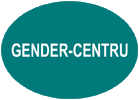The Perseverance of a Young Refugee Woman from Ukraine Who Opened Her Own Business in Moldova
Xenia Kim, a 26-year-old from Ukraine, sought refuge in Moldova at the onset of the war, bringing not only her two-year-old child but also her two younger sisters, who relied on her care. The new reality was overwhelming for Xenia, and her initial months in Moldova were marked by stress and isolation. Despite having supportive relatives, the feelings of vulnerability and uncertainty were difficult to overcome.
Gradually, Xenia began stepping out of her comfort zone and exploring her new environment. She briefly worked at a local restaurant but soon realized she aspired to something more. Determined to work independently, she accessed an entrepreneurship course with the help of Moldovan NGOs. Programs designed for refugee women offered her the opportunity to learn the necessary steps to start a business—from managing documents to marketing strategies and business plan development.
“I found it fascinating to learn how to create a business plan. I never expected it to be so engaging and useful,” Xenia shared.
After putting significant effort into finding her place in the job market, Xenia explored creative fields, including designing custom wheel covers for cars. However, opportunities in this niche were scarce in Moldova. Eventually, her passion for art led her to tattooing, inspired by her brother, a tattoo artist in Moscow.
“I never imagined myself as a tattoo artist. There were so many stereotypes about this profession, but I thought, why not give it a try?” she recalled. Xenia enrolled in a professional course at a tattoo school in Chisinau, where she was deeply inspired and motivated by her mentors.
Remaining true to her artistic passion, Xenia built a career around her talent, which she had been developing since her teenage years. With a background in fine arts, she applied everything she had learned in Ukraine to a field often perceived as “masculine”—tattooing.
“Many people think a tattoo artist has to be a large man who intimidates others. But tattoo art isn’t about physical strength—it’s about creativity and attention to detail,” she explained.
The road to officially opening her own business was far from easy. Navigating bureaucratic processes, translating documents into Romanian, and meeting health regulations were major challenges. Nevertheless, her determination prevailed, and after months of effort, Xenia opened her own tattoo studio in the center of Orhei.
Today, Xenia is a symbol of success and perseverance. Not only does she work as a tattoo artist in her studio, but she has also used her experience to train another young woman who is set to become her apprentice, ensuring the craft’s continuity within her business. Many clients choose her not just for her talent but also for the inspiring story behind each piece of art she creates.
Her success in Moldova highlights the power of turning challenges into opportunities, with the support of local communities and NGOs playing a crucial role in achieving her dream.
“Don’t let anyone tell you that you can’t do something just because it’s not typically feminine. I’ve learned that the power lies within us, and if we have the courage to follow our dreams, no matter the difficulties, they can come true. Moldova has given me this chance, and I hope my story inspires other women not to give up,” Xenia concluded.
Xenia’s story not only showcases the strength and determination of a refugee woman in the face of challenges but also serves as an example of the support and opportunities provided by local organizations and initiatives for women in vulnerable situations.
As part of the project “Promoting Women’s Leadership and Coordinating Gender Equality in Refugee Response in Moldova,” Gender-Centru, in partnership with UN Women, facilitated a platform to amplify the voices of refugee women and those from vulnerable groups.
Through consultations with women’s organizations and refugee groups, challenges and needs were identified, and the insights gained were integrated into a crisis response framework. The project ensures essential support for vulnerable women in Moldova, contributing to a more inclusive response for refugees. Xenia’s story illustrates how the support received can help women find their place in a new community and achieve their dreams.
This story was developed as part of the project “Promoting Women’s Leadership and Coordinating Gender Equality in Refugee Response in Moldova,” implemented by Gender-Centru in partnership with UN Women, with financial support from the National Committees.





